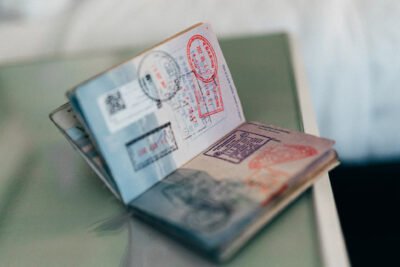If you’re a Filipino-American, dual citizen, or non-resident Filipino (NRF), buying a property in the Philippines might feel like coming back home—literally and emotionally. But as with anything involving real estate and international ownership, you’ve got to first understand your legal identity and the tax rules that come with the territory.
For more information on how to acquire real estate in the PH, read on below:
Legal Identities

1. Dual Citizen
To be eligible for dual citizenship under the Philippines’ Republic Act 9225, also known as the “Citizenship Retention and Re-acquisition Act of 2003,” you must be a former natural-born Filipino citizen who has become a naturalized citizen of another country. So, if you’re a former natural-born Filipino who already re-acquired Philippine citizenship, then you can still retain your U.S. citizenship. As such, in the eyes of the law, you’re now 100% Filipino with all the rights and responsibilities of any other citizen—including ownership of real
estate without restrictions.
2. Non-Resident Filipino (NRF)
This group includes (1) OFWs; (2) Filipino immigrants who retained their Philippine citizenship; and (3) Filipino citizens who have lived abroad for a long time but have yet to renounce their citizenship. The key rule for this group is that even if they are residing overseas, they may intend to own land, condominium units, a house and lot, as well as townhouses in the PH as long as they retain their Philippine citizenship.
3. Former Filipinos
As a side note, former natural-born Filipinos who do not wish to apply for dual citizenship or are not qualified to re-acquire Filipino citizenship pursuant to Rep. Act No. 9225, can still acquire land by virtue of the provisions of Batas Pambansa Bilang 185. Under this law, former natural-born Filipinos can be a transferee of a private urban land up to one thousand square meters and private rural land up to one hectare. The final restriction here is that the private land to be purchased (whether urban or rural) should be used by the transferee for residential purposes and not for business operations.
Property Ownership Rights

Here’s the good news: if you’re a dual citizen or an NRF, you can enjoy full rights to owning real estate in the Philippines. In fact, you can legally acquire the types of properties below:
- Residential lots
- House-and-lot properties
- Condominiums
- Agricultural land
- Commercial properties (with necessary documents and business permits from the LGU)
Just like any other Filipino citizen, you are also permitted to do the following:
- Buy, sell, or inherit real estate
- Transfer property to heirs or family members
- Register the title in your name
- Use the property as a rental unit, vacation home, or retirement residence
Legal Considerations for Overseas Buyers

Generally, while foreigners are prohibited from owning a piece of land in the Philippines, they are allowed to purchase condo units or lease land on a long-term basis. To know more about this topic, check out some legal factors that you must stay on top of as an overseas property owner:
1. Special Power of Attorney (SPA)
Since you’re not physically present in the Philippines, any legal transactions (e.g., signing contracts, submitting documents, paying taxes) will require an SPA that authorizes someone in the PH to act on your behalf. Take note that the SPA must be notarized by the Philippine Consulate in your country, too. After specifying the exact powers (e.g., signing, selling, leasing, or mortgaging your property) of the person whom you authorized, you should submit the document to the Register of Deeds and the Bureau of Internal Revenue (BIR) for it to be officially recognized.
2. Title Registration
In registering your property, make sure that the title is under your legal name. Check if it the registered name matches your government ID or Philippine passport, too. If the property is inherited or gifted, go through the legal process of estate settlement and register the transfer accordingly.
3. Zoning and Land Use
In the Philippines, some land types (e.g., agricultural, residential, or commercial) have restrictions on what you can actually do with it. For instance, if you plan to establish a farm tourism business, you may need to obtain a conversion certificate. As for zoning laws, building permits, and usage rules, you can also check with your local government unit (LGU).
Tax Implications for Dual Citizens and Non-Resident Filipinos

Now, let’s talk about everyone’s favorite (or not-so-favorite) topic: taxes. As a property owner in the Philippines, even if you live abroad, you’re still liable for certain taxes.
1. Real Property Tax (RPT)
Real property taxes are paid annually to the LGU. It is based on the assessed value of your property, and ranges between 1% to 2% depending on your location. Also, keep in mind that each year, you need to settle this before January 31 to avoid corresponding penalties. You can pay the RPT in advance as well for you to be able to get 20% discount for the incoming full year’s RPT. This task can be assigned to your designated representative in the Philippines.
2. Capital Gains Tax (GPT)
Capital gains taxes are applicable when you sell a property—whether you incur an actual gain or not. The rate for this is 6% of the gross selling price or the current schedule of market value (whichever is higher), which is typically paid by the seller but is also often negotiated. Even if you’re a non-resident, though, you must file and pay the CGT through the BIR before transferring the title.
3. Documentary Stamp Tax (DST)
Paid by the buyer at a rate of 1.5%, the document stamp tax applies when executing a Deed of Absolute Sale, Donation, or Mortgage Agreement, among other documents.
4. Donor’s Tax
Taxed at 6% of the current schedule of market value of the donated property, the donor’s tax is applicable when gifting property to another person. However, exemptions apply to gifts up to P250,000 in value, annually.
5. Estate Tax
When the owner of the property passes away, the heirs must pay the estate tax before they can legally transfer ownership. In case you don’t know, this should also be filed within one year from the date of death. Moreover, if you own real estate in the Philippines, it is advisable to create an estate plan to make estate settlement easier in the future.
Frequently Asked Questions (FAQs):
1. Do you need to file income taxes in the Philippines?
If your property is income-generating (for lease or for rent), you must register with the BIR and pay an income tax (depending on the rental income) and value-added tax (VAT) or percentage tax, if applicable. You may hire a Philippine as well accountant to help you file the necessary returns annually. Failure to register and pay taxes can incur penalties. On the other hand, if you’re not earning any Philippine-sourced income, you are not required to file income taxes in the Philippines. But, you’re still responsible for property taxes, and should properly report any sale or transfer of property.
2. Can you open a bank account or get a loan as a dual citizen?
Yes. In fact, most banks in the Philippines allow dual citizens and non-resident Filipinos to open peso or dollar accounts, apply for housing loans, auto loans, and even investment loans. However, some banks require proof of income such as certificate of employment (COE) and payslips, TIN and government-issued IDs, and dual citizenship certificate (if applicable). Other banks like BDO, BPI, Security Bank, and RCBC also offer special programs tailored to fit the specific needs of OFWs and overseas buyers.
Requirements Checklist:
- Dual citizenship certificate or proof of Filipino citizenship
- Valid Philippine Tax Identification Number (TIN)
- Annual RPT payment receipt
- SPA (if managing from abroad)
- Legal ownership documents (TCT/CCT, tax declaration, etc.)
- Draft or notarized Philippine will (if applicable)
Key Takeaways:
Owning a property in the Philippines as a non-resident or dual citizen isn’t just a dream—it’s a well-supported legal right. However, to make it stress-free and financially sound, it is essential to know your rights under Philippine laws, register everything properly with the Registry of Deeds and the BIR, keep up with annual tax obligations, and avoid common legal mistakes by hiring licensed professionals. Plus, always leave a clear paper trail for your heirs or representatives, especially if your property is meant to be passed on. If you’re based in the U.S. and need help with your filing property taxes, understanding your legal setup, drafting an SPA, reviewing a Deed of Sale or title, creating an estate plan for your properties, reach out to a licensed Philippine real estate lawyer or estate planning expert who specializes in providing services to overseas Filipino clients.
